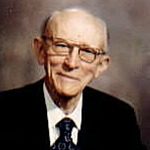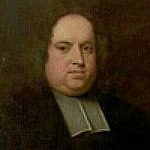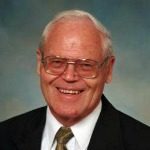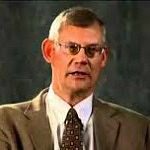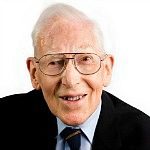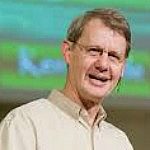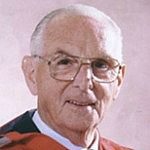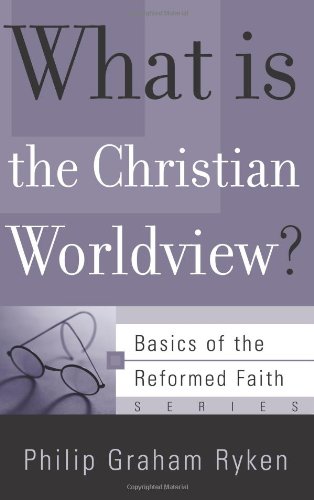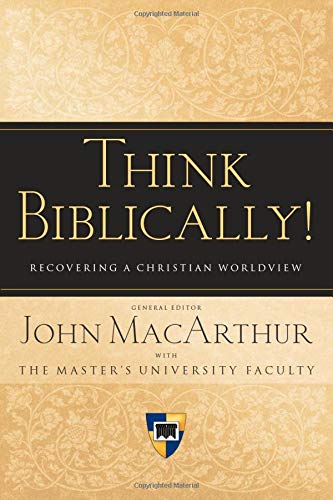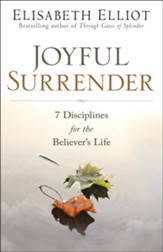Quotes about Wisdom-Human
Wisdom is skill in the art of living life with each component under the dominion of God… Wisdom includes the ability to use the best means at the best time to accomplish the best ends. It is not merely a matter of information or knowledge, but of skillful and practical application of the truth to the ordinary facets of life.
Not all leaders think about wisdom as a character trait that needs to be carefully cultivated. Of course, we would quickly agree that wisdom is more valuable than money or status. At least we would agree with that statement intellectually. But how many of us pursue wisdom with the same vigor with which we pursue wealth? How many of us cultivate wisdom with the same passion we use to cultivate our stock portfolio? Somehow we believe that wisdom just comes by itself. Certainly, wisdom can and often is the end result of long experience in the leader’s field of expertise. But the leader who gains wisdom by making poor decisions and learning from them is much farther behind than the leader who seeks the right kind of wisdom from the start.
Wisdom an understanding and application of the moral principles of God.
The Practice of Godliness, NavPress, 1996, p. 89. Used by permission of NavPress – www.navpress.com, All rights reserved. Get this book!
[Discernment is] a mental sense of smell that helps you notice when “something smells fishy”…How can you sharpen this mental sense of smell? How can you develop discernment? First, you need to have a spirit of obedience to Jesus Christ. If your spirit is in rebellion, your nose will be in rebellion too. Second, you need to study the Word of God and other Christian literature. We’re talking about a mental, not physical, sense of smell. In order to develop it you have to use your mind. Third, you need to practice smelling. Smell everything. Your power of discernment is like a muscle. Use it or lose it. Fourth, you need to be accountable to other believers in a healthy Christian fellowship. If you try to learn to smell by yourself, your mental sense of smell will be eccentric. You’ll be like someone who takes a deep whiff of dung and says, “Ah, roses!”
Copied from How to Stay Christian in College by J. Budziszewski copyright 2004, p.148-149. Used by permission of NavPress (Think Books) – www.navpress.com. All rights reserved. Get this book!
Nearly all the wisdom we possess, that is to say, true and sound wisdom, consists of two parts: the knowledge of God and of ourselves. But, while joined by many bonds, which one precedes and brings forth the other is not easy to discern… the knowledge of ourselves not only arouses us to seek God, but also, as it were, leads us by the hand to find Him… [But] it is certain that man never achieves a clear knowledge of himself unless he has first looked upon God’s face, and then descends from contemplating him to scrutinize himself.
Wisdom is a process of cognition, not a bombshell out of the sky. In our non-thinking day it is quite popular to short-cut the painful process of reasoning for a blank waiting on some inner voice. It seems highly spiritual to do so and carries with it a magical authority. (“I got this from God at four o’clock in the morning!”) In this way the most spiritually unkempt believer or the novice has equal voice with the wisest Christian veteran.
Led by the Spirit, Joshua Press, 1999, p. 34, http://www.solascriptura.ca/shop/store.php?crn=215.
Thoughtful, biblically-induced attraction toward certain holy desires, with patient waiting before God in prayer, is no less the work of the Spirit than the most dramatic “immediate impulse” others may claim. This is the normal biblical pathway to wisdom. The man who makes the wise decision, yet always remains open to God’s further intervention in whatever way God pleases, is demonstrating normative spiritual guidance.
Led by the Spirit, Joshua Press, 1999, p. 43, http://www.solascriptura.ca/shop/store.php?crn=215.
If you lack knowledge, go to school. If you lack wisdom, get on your knees! Knowledge is not wisdom. Wisdom is the proper use of knowledge.
It is better to get wisdom than gold. Gold is another’s, wisdom is our own; gold is for the body and time, wisdom for the soul and eternity.
A.T. Robertson, the towering genius of Greek grammar, calls wisdom “the practical use of knowledge.” F.J.A. Hort, in his painstaking commentary, terms it “that endowment of heart and mind which is needed for right conduct in life.” J.H. Ropes describes it as “the supreme and divine quality of the soul which man knows and practical righteousness.” And Ralph Martin in his recent study states. “For the Jewish mind wisdom meant practical righteousness in everyday living.”
Taken from James by Kent Hughes, copyright 1991, Crossway Books, a division of Good News Publishers, Wheaton Illinois 60187, p. 27, www.crosswaybooks.org.
Every time someone comes to [God] with a request, He opens His treasury and freely distributes wisdom. Just as the sun continues to give light, so God keeps on giving wisdom. We cannot imagine a sun that fails to give light; much less can we think of God failing to give wisdom. God’s gift is free, without interest, and without the request to pay it back [see James 1:5].
Human wisdom sometimes sees the immediate cause of a problem but it does not see the root, which is always sin. It may see that selfishness is a cause of injustice, but it has no way to remove selfishness. It may see that hatred causes misery and pain and destruction, but it has no cure for hatred. It can see plainly that man does not get along with man, but it does not see that the real cause is that man does not get along with God. Human wisdom cannot see because it will not see. As long as it looks on God’s wisdom as foolishness, its own wisdom will be foolish. In other words, human wisdom itself is a basic part of the problem.
The simplicity of the gospel gives what the complexity of human wisdom promises but never delivers.
“Wise” speaks not of one who merely knows some fact, but of one who is skilled in the art of godly living. He submits to Scripture and knows how to apply it to his circumstances.
Truth in a World of Theory from Our Sufficiency in Christ, 1991, Crossway Books, a division of Good News Publishers, Wheaton Illinois 60187, www.crosswaybooks.org. p. 82.
Discernment is the understanding and appreciation of the real knowledge of God’s revelation that produces holy living.
Wisdom is the means by which the godly can both discern and carry out the will of God.
Wisdom in ruling is justice; wisdom in speech is discretion; wisdom in conduct is prudence; wisdom in evaluation is discernment (George Seevers).
Quoted in: Curtis C. Thomas, Practical Wisdom for Pastors, Crossway Books, 2001, p. 210. Used by Permission.
Wisdom consists of choosing the best means to the best end.
Taken from Knowing God by JI Packer. Copyright(c) 1973. Used by permission of InterVarsity Press, PO Box 1400, Downers Grove, IL 60515, p. 108. Get this book!
Not till we have become humble and teachable, standing in awe of God’s holiness and sovereignty, acknowledging our own littleness, distrusting our own thoughts and willing to have our minds turned upside down, can divine wisdom become ours.
Taken from Knowing God by JI Packer. Copyright(c) 1973. Used by permission of InterVarsity Press, PO Box 1400, Downers Grove, IL 60515, p. 101. Get this book!
Having wisdom does not mean that you understand all of God’s ways; it means that you respond to life God’s way. The better you know the Bible, the wiser you will [become].
Reprinted from The Peacemaker: A Biblical Guide to Resolving Personal Conflict, Ken Sande, Baker Books, 3d ed., 2004, p. 39. Peacemaker® Ministries. www.Peacemaker.net , Used by Permission. Get this book!
If knowledge is the accumulation of facts, intelligence the development of reason, wisdom is heavenly discernment. It is insight into the heart of things. Wisdom involves knowing God and the subtleties of the human heart. More than knowledge, it is the right application of knowledge in moral and spiritual matters, in handling dilemmas, in negotiating complex relationships.
If knowledge comes by study, wisdom comes by Holy Spirit filling.
The more I grow in godliness is the more I will understand God’s love. And the more I understand God’s love the more I will be able to discern (Phil. 1:9-10). Discernment is telling the difference not between what is right and wrong, but what is good and what is excellent.
People only have true understanding (wisdom) when they look at everything from God’s perspective. Authentic wisdom begins when we understand that God is to be the object of our devotion, our adoration, and our reverence (Psalm 111:6).
The Purpose of God, An Exposition of Ephesians, Christian Focus Publications, 1994, p. 38.
Wisdom is the right of knowledge. To know is not to be wise. Many men know a great deal, and are all the greater fools for it. There is no fool so great a fool as a knowing fool. But to know how to use knowledge is to have wisdom.
Discernment is not a matter of simply telling the difference between right and wrong; rather it is telling the difference between right and almost right.
Get a friend to tell you your faults, or better still, welcome an enemy who will watch you keenly and string you savagely. What a blessing such an irritating critic will be to a wise man, what an intolerable nuisance to a fool!
Discernment and spiritual insight are the result of the exercise and use of spiritual faculties, such that can only come with time, growth, and experience.
The Carnal Christian – Study of 1 Corinthians 3:1-3, November 6, 2006, www.enjoyinggodministries.com. Used by Permission.
But how do we get [wisdom]? There are several basic prerequisites.
1. Admit our need. Solomon said, “With the humble is wisdom” (Proverbs 11:2). The humble are those who do not think more highly of themselves than they should. They are willing to admit that they do not have all the answers, that their opinions may not always be right, and that they need to know the mind of God. In other words, they have a teachable spirit.
2. Fear the Lord. The Psalmist said, “The fear of the LORD is the beginning of wisdom” (Psalm 111:10). To fear God is not to cower before Him in terror, but to bow before Him in awe, respect, and total trust in His purposes for our lives.
3. Study God’s Word. By loving God’s Word and meditating on it daily, the Psalmist discovered that he was wiser than his enemies, that he had more insight than his teachers, and more understanding than the aged (Psalm 119:97-100).
4. Pray. “But if any of you lacks wisdom, let him ask of God, who gives to all men generously and without reproach, and it will be given to him” (James 1:5). Sometimes praying for wisdom is the last thing we think to do when we face a knotty problem, a difficult decision, a pressing emergency, or an alarming crisis. The Lord is standing ready to give us His wisdom and we often think about everything we can do to work out the problem except talking to Him about it.
[Wisdom is:] 1. Seeing life from God’s point of view. 2. Ability to select the best goals for one’s life and the best means to achieve them. 3. Skill of living life before God.
Excerpted from: A Journey to Victorious Praying, Moody Publishers, 2003, p. 92.
Get this book!
True wisdom, which will help us make our way through this complex world, begins by acknowledging the Lord and humbling ourselves before Him (Pr. 9:10). It submits to the view that He knows best, and what this is comes to us through…the special revelation of His Word.
Wisdom is all a matter of viewing the world God’s way, with God’s revelation providing the necessary framework which alone makes sense of life, giving it some sort of coherence and direction. This is sometimes called a worldview, a kind of moral map with the main points located so we can steer our way through life to maximum benefit. Accordingly, whatever it is that is to be studied, whether science, history, or home economics, all of these things can be placed within a Christian framework, in terms of the Creator-Redeeming God, and where they can be made sense of.
Knowledge and wisdom, far from being one, have often no connection. Knowledge dwells in heads replete with thoughts of other men: Wisdom, in minds attentive to their own. Knowledge is proud that he has learned so much, Wisdom is humble, that he knows no more.
Wisdom is, and starts with, the humility to accept the fact that you don’t have all the right answers, and the courage to learn to ask the right questions.
Reading a proverb takes only a few seconds; applying a proverb can take a lifetime.
You’ll find wisdom at the intersection of truth and love.
Other stories are always looking for ways to humanize God and deify us, but God’s story exalts Him and brings appropriate humility to us as His creatures. All wisdom starts here. If you miss it, you are on the wrong path and without hope.
Depression: A Stubborn Darkness, Punch Press, 2004, p. 252. Get this book!





